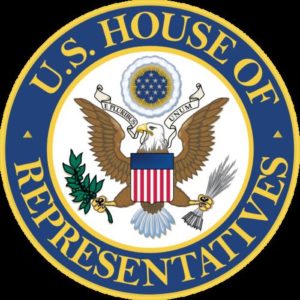By Jim Ellis — Wednesday, April 24, 2024
President

President Joe Biden / Photo by Gage Skidmore
While we had consistently seen higher Republican turnout opposite the Democrats in the earlier primary states around the country, yesterday in the Keystone State, approximately 100,000 more Democrats look to have voted than Republicans once all of the cast ballots are recorded. President Biden recorded 88.8 percent in the Democratic primary, while former President Donald Trump took 82.8 percent on the Republican side.
House
Pennsylvania: House Primary Results — In the Pennsylvania congressional races, the most competitive incumbent challenge occurred in the Pittsburgh-anchored 12th District. While challenger Bhavini Patel ran a strong grassroots effort against freshman Rep. Summer Lee (D-Swissvale), the race ended in a projected 60.2 – 39.4 percent split in the congresswoman’s favor. A combination of a major Lee resource advantage and staying away from any emphasis on her being part of the Socialist Democratic caucus’ “Squad,” allowed her to capture a definitive renomination victory.
In terms of challenger races, state Rep. Ryan Mackenzie (R-Emmaus) defeated technology business owner and 2022 congressional candidate Kevin Dellicker and attorney Maria Montero to win the GOP nomination in the Allentown-Bethlehem-Easton anchored 7th District. Mackenzie will now advance to the general election to face three-term Rep. Susan Wild (D-Allentown) in what figures to be another competitive campaign. Rep. Wild has averaged only 51.5 percent of the vote in her last two elections. Yesterday’s turnout in this seat proved to be about even between the two parties.
In the 10th District that featured a competitive Democratic primary for the right to challenge veteran Rep. Scott Perry (R-Dillsburg/Harrisburg), former local news anchor Janelle Stelson outpaced businessman Mike O’Brien and four others to claim the party nomination. Turnout favored the Republicans in a district that the FiveThirtyEight data organization rates as R+9. Still, this is another campaign to watch in the coming general election.
MI-4: Rep. Huizenga Draws Primary Challenger — On the last day of candidate filing in Michigan, Ottawa County Republican Party chairman Brendan Muir announced that he will challenge seven-term US Rep. Bill Huizenga (R-Holland) in the 2024 Republican primary. This is Rep. Huizenga’s first term representing the post-redistricting 4th CD. Prior to the 2022 election, he was the 2nd District incumbent, but that seat was eliminated in reapportionment and redistricting.
Ottawa County, which houses Huizenga’s home city of Holland, is an entity housing just over 300,000 residents. The 4th District portion of Ottawa County — the municipality is split between the 3rd and 4th Districts — is the second largest voting block in the CD behind Kalamazoo County. Rep. Huizenga will be a heavy favorite both for renomination and re-election.
Governor
Virginia: Spanberger Opponent Drops Bid — Richmond Mayor Levar Stoney (D) announced yesterday that he is ending his 2025 bid for governor and instead will enter what is expected to be an open contest for lieutenant governor. The move, at least for the short term, leaves Rep. Abigail Spanberger (D-Glen Cove) as unopposed for the Democratic gubernatorial nomination.
Stoney, however, is entering a contested primary for the secondary position. State Sen. Aaron Rouse (D-Virginia Beach), a former NFL and UFL football player, also announced his bid for lieutenant governor yesterday. Sen. Rouse, also a former Virginia Beach City Councilman, was elected to the Senate in a special election in early 2023.






